SUMMARY
This is AI generated summarization, which may have errors. For context, always refer to the full article.
![[Newspoint] A constitutional outrage](https://www.rappler.com/tachyon/2022/06/newspoint-A-constitutional-outrage.jpg)
An only proper outrage has been provoked by incoming press secretary Trixie Angeles’s announcement that she will accredit bloggers as members of the press corps that will cover Ferdinand Marcos Jr.’s presidency. Of course, Angeles can insist on it by force of executive power, but still it won’t make things right. The issue is one of principle, and its resolution should not be left to choice.
I have often weighed in on the issue, in fact touching on it in my previous turn in this space and, precisely at Angeles’ incitement, in discussions online. Here I intend to be more expansive, and this will not be the last of it, I promise. The role of the press is simply too critical to keeping the balance of power in a democracy for any threat, however slight, to its ascendancy to go unmet.
Indeed, Angeles may have been emboldened by the much milder response her predecessor, Martin Andanar, got when he made an exactly similar threat, in 2016, upon the installation of his own president. Possibly belatedly embarrassed by his obsequious-sounding reasoning – that bloggers helped Rodrigo Duterte get elected – he decided not to force the issue and to just keep his bloggers hidden, as kept bloggers only deserve – kept out of the legitimate crowd.
Well, Angeles appears more subversively intent. A blogger herself, and a kept one as would appear by her draft as press secretary, she wants herself and her interloping kind equated with journalists, thus legitimized as part of the institution assigned as the people’s watchdog on government. And, given the proliferation of Angeles’ kind, the press may well be in danger of being drowned out, if not downright drowned.
A consideration missed for all its obvious practicality is that, because the public is unable to undertake the role by and for itself, an alternative institution has been designed – the press – and, to enable it to fulfil its difficult and delicate role, bestowed a freedom distinct from the general freedoms of speech and of expression. Expected, needless to say, to operate under commensurate rigors, the press has developed itself into both a profession and a trade, as such subject to institutional as well ethical and moral standards and sanctions.
Applicants of my time needed to pass at least two tests – one for general aptitude and the other in writing in the news form from a set of supplied materials – before being accepted, and, even so, only on probation. Full-fledged journalists, for their part, train constantly not just to better themselves but, as is direly needed in these confused times, which Angeles is confusing further, to distinguish themselves from the impostors. As for internal checks, their works go through layers of expert vetting for truthfulness and fairness and certain technicalities of craft and law before being approved for public consumption.
Blogging is nothing like that at all; not even in the loosest sense can it compare with journalism. Blogging is a cheap, individualistic, free-wheeling operation. One need not train for it; in fact, anyone can go into it. As I always say for graphic comparison, journalism is a piloted train, blogging a runaway one.
That is not to say that blogging has not contributed to the cause the press has taken for itself – speaking truth to power. But again, if any reporting or opinion-making by bloggers is notable for that virtue, it is not on account of any aptitude purposefully developed and supervised for journalism. It may well be a natural aptitude even, as with one born to raise proper hell; still, possessing that aptitude does not qualify one as a journalist.
It’s precisely because of the dangers arising from that sort of confusion that an academic-based system of accreditation has been set up for the professions in general. Where licensure is required, the final process is conducted by the state, and journalism is exempt from it because of the adversarial attitude its practitioners are meant to assume toward the government.
But if anyone thinks the press gets an airtight deal just because that deal is enshrined in the Constitution, they only have to review the relationship of the press to the Duterte regime: the oldest and widest-reaching broadcast franchisee was shut down, the owners of the nation’s preeminent newspaper were threatened with business sanctions, and the founder and CEO of this news organization has been slapped with multiple libel and securities suits.
And if anyone is looking for any hope for the press in the imminent change in administration, Trixie Angeles, by herself, is omen enough. – Rappler.com
Add a comment
How does this make you feel?

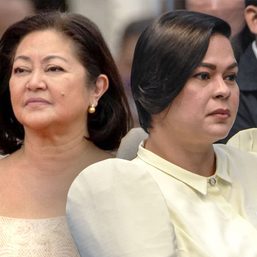
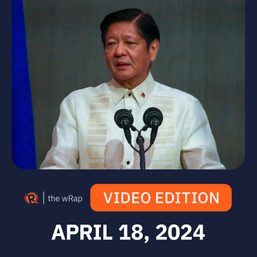
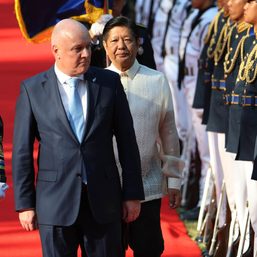

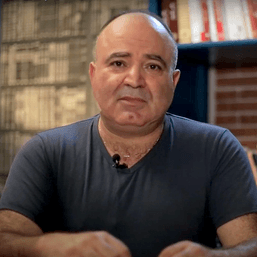

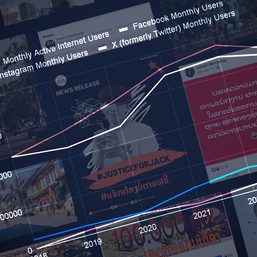
![[ANALYSIS] Investigating government’s engagement with the private sector in infrastructure](https://www.rappler.com/tachyon/2024/04/tl-gov-private-sectors-infra-04112024-1.jpg?resize=257%2C257&crop=435px%2C0px%2C1080px%2C1080px)
![[Newsstand] The media is not the press](https://www.rappler.com/tachyon/2024/04/tl-media-is-not-the-press-04132024.jpg?resize=257%2C257&crop=281px%2C0px%2C720px%2C720px)
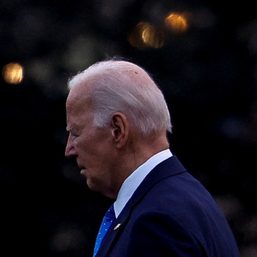
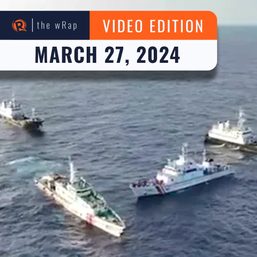
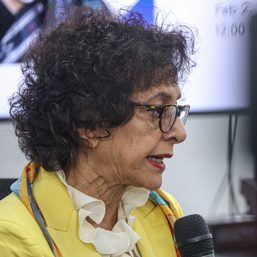
There are no comments yet. Add your comment to start the conversation.